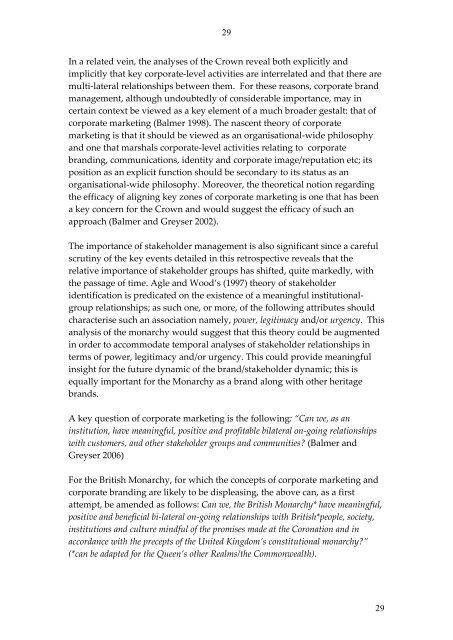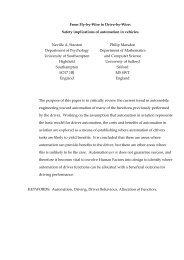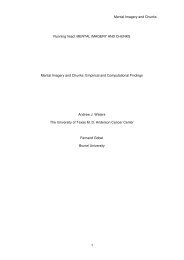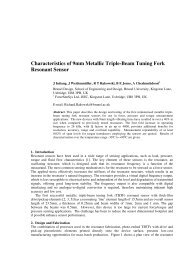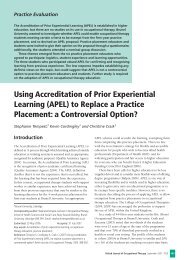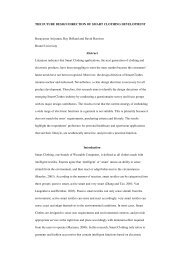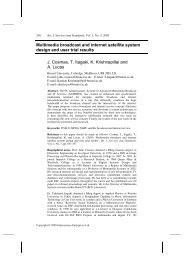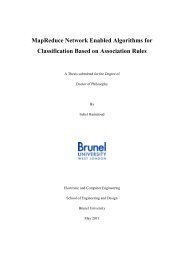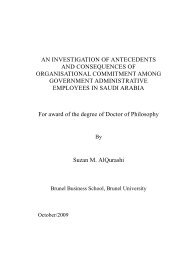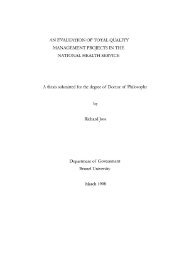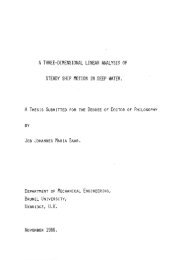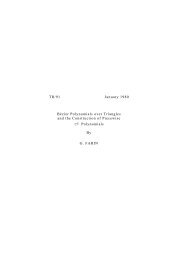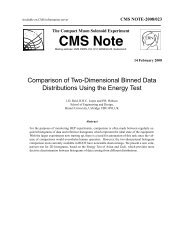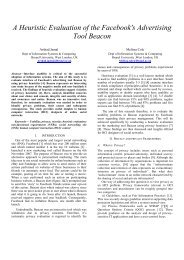insights from the british monarchy - BURA - Brunel University
insights from the british monarchy - BURA - Brunel University
insights from the british monarchy - BURA - Brunel University
Create successful ePaper yourself
Turn your PDF publications into a flip-book with our unique Google optimized e-Paper software.
29<br />
In a related vein, <strong>the</strong> analyses of <strong>the</strong> Crown reveal both explicitly and<br />
implicitly that key corporate-level activities are interrelated and that <strong>the</strong>re are<br />
multi-lateral relationships between <strong>the</strong>m. For <strong>the</strong>se reasons, corporate brand<br />
management, although undoubtedly of considerable importance, may in<br />
certain context be viewed as a key element of a much broader gestalt: that of<br />
corporate marketing (Balmer 1998). The nascent <strong>the</strong>ory of corporate<br />
marketing is that it should be viewed as an organisational-wide philosophy<br />
and one that marshals corporate-level activities relating to corporate<br />
branding, communications, identity and corporate image/reputation etc; its<br />
position as an explicit function should be secondary to its status as an<br />
organisational-wide philosophy. Moreover, <strong>the</strong> <strong>the</strong>oretical notion regarding<br />
<strong>the</strong> efficacy of aligning key zones of corporate marketing is one that has been<br />
a key concern for <strong>the</strong> Crown and would suggest <strong>the</strong> efficacy of such an<br />
approach (Balmer and Greyser 2002).<br />
The importance of stakeholder management is also significant since a careful<br />
scrutiny of <strong>the</strong> key events detailed in this retrospective reveals that <strong>the</strong><br />
relative importance of stakeholder groups has shifted, quite markedly, with<br />
<strong>the</strong> passage of time. Agle and Wood’s (1997) <strong>the</strong>ory of stakeholder<br />
identification is predicated on <strong>the</strong> existence of a meaningful institutionalgroup<br />
relationships; as such one, or more, of <strong>the</strong> following attributes should<br />
characterise such an association namely, power, legitimacy and/or urgency. This<br />
analysis of <strong>the</strong> <strong>monarchy</strong> would suggest that this <strong>the</strong>ory could be augmented<br />
in order to accommodate temporal analyses of stakeholder relationships in<br />
terms of power, legitimacy and/or urgency. This could provide meaningful<br />
insight for <strong>the</strong> future dynamic of <strong>the</strong> brand/stakeholder dynamic; this is<br />
equally important for <strong>the</strong> Monarchy as a brand along with o<strong>the</strong>r heritage<br />
brands.<br />
A key question of corporate marketing is <strong>the</strong> following: ‚Can we, as an<br />
institution, have meaningful, positive and profitable bilateral on-going relationships<br />
with customers, and o<strong>the</strong>r stakeholder groups and communities? (Balmer and<br />
Greyser 2006)<br />
For <strong>the</strong> British Monarchy, for which <strong>the</strong> concepts of corporate marketing and<br />
corporate branding are likely to be displeasing, <strong>the</strong> above can, as a first<br />
attempt, be amended as follows: Can we, <strong>the</strong> British Monarchy* have meaningful,<br />
positive and beneficial bi-lateral on-going relationships with British*people, society,<br />
institutions and culture mindful of <strong>the</strong> promises made at <strong>the</strong> Coronation and in<br />
accordance with <strong>the</strong> precepts of <strong>the</strong> United Kingdom’s constitutional <strong>monarchy</strong>?‛<br />
(*can be adapted for <strong>the</strong> Queen’s o<strong>the</strong>r Realms/<strong>the</strong> Commonwealth).<br />
29


